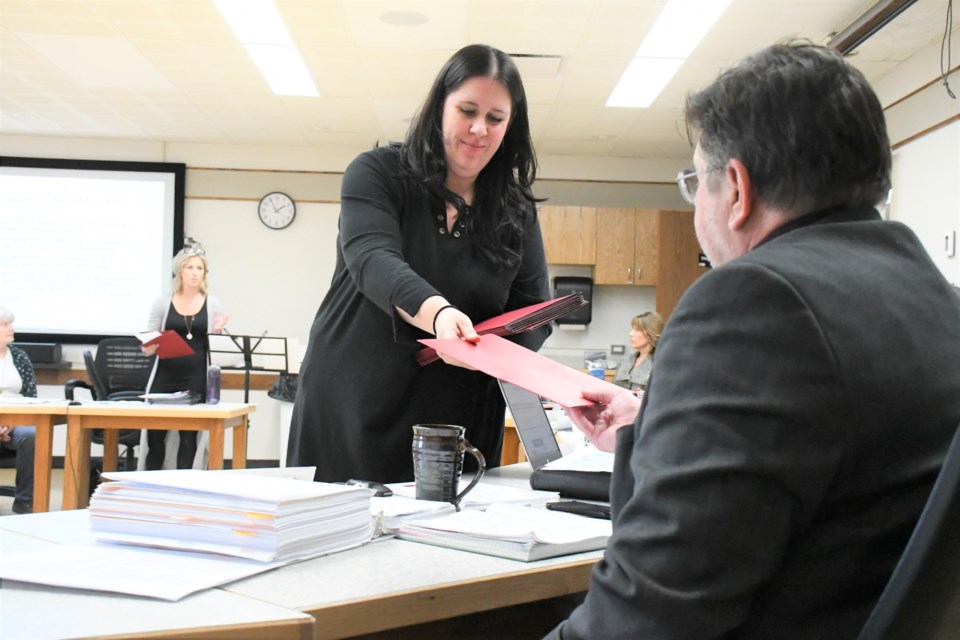Traditional teacher-directed teaching methods have been shown in countless studies to be a more effective way to educate students than any other approach, a policy paper suggests.
Ever since the 1960s, when the United States government funded one of the largest educational research studies ever conducted, researchers have found students who receive direct instruction did better in all areas of schooling than students who engage in constructivist — or self-discovery — education, according to the Canadian-based Frontier Centre for Public Policy (FCPP) in a 2014 paper entitled “A Parent’s Guidebook to Common Sense Education in Saskatchewan.”
The report was presented during the Prairie South School Division’s most recent board meeting by a trio of mothers concerned about the use of outcome-based education and reporting (OBE/R) in schools. The three women presented several documents they hoped would convince trustees and division administration to consider abolishing this way of reporting.
The report can be found at www.fcpp.org/sites/default/files/sk-eduhandbook.pdf.
A review of the research
Researchers found that not only did students in the direct instruction group have superior reading and math skills, they also had more advanced skills in reading comprehension and math problem-solving, according to the FCPP document. Furthermore, direct instruction students had more positive self-esteem that was likely due to their academic competence.
These groups of students were followed for 10 years, with the direct instruction students continuing to outperform the other students in math, reading and writing. These students were also more than twice as likely to complete high school as students in the constructivist group.
Jeanne Chall, a Harvard University professor, wrote a book that synthesized all the major research studies comparing the effectiveness of traditional, teacher-directed techniques with student-centred, or constructivist, techniques. Chall’s conclusion:
“Traditional, teacher-centered schools, according to research and practice, are more effective than progressive, student-centered schools for the academic achievement of most children. And that approach is especially beneficial for students who come to school less well-prepared for academic learning — children of less-educated families, inner-city children, and those with learning difficulties at all social levels.”
Books provide solid evidence
John Hattie, director of the Melbourne Education Research Institute in Australia, authored a book that reviewed the results of thousands of research studies into the way teachers teach and how student achieve.
He wrote: “The role of the constructivist teacher is claimed to be more of facilitation to provide opportunities for individual students to acquire knowledge and construct meaning through their own activities, and through discussion, reflection and the sharing of ideas with other learners with minimal corrective intervention. These kinds of statements are almost directly opposite to the successful recipe for teaching and learning … .”
In 2006, the highly-rated journal "Educational Psychologist" published a peer-reviewed article by three physicians. The authors compared the effectiveness of traditional, teacher-centred teaching methods with minimally guided constructivist teaching techniques.
Their conclusion showed: “In so far as there is any evidence from controlled studies, it almost uniformly supports direct, strong, instructional guidance rather than constructivist-based minimal guidance during the instruction of novice to intermediate learners.
“Even for students with considerable prior knowledge, strong guidance while learning is most often found to be equally effective as unguided approaches. Not only is unguided instruction normally less effective; there is also evidence that it may have negative results when students acquire misconceptions or incomplete or disorganized knowledge.”
Mike Schmoker, an author, speaker and former school administrator, wrote a book that outlines three things schools must do to improve students’ academic achievement: have a coherent and focused curriculum, ensure teachers teach high-quality lessons, and include purposeful reading and meaningful writing in every course. Essentially, students should actually read substantive, quality books and articles and write formal essays.
“… (P)resent-day curriculum guides contain too much verbiage and too few clearly defined goals and standards for the students to reach,” the report said of Schmoker’s findings.
While his recommendations go against constructivist ideology, which discourages direct instruction, the report added that Schmoker’s recommendations are supported by considerable research evidence.




